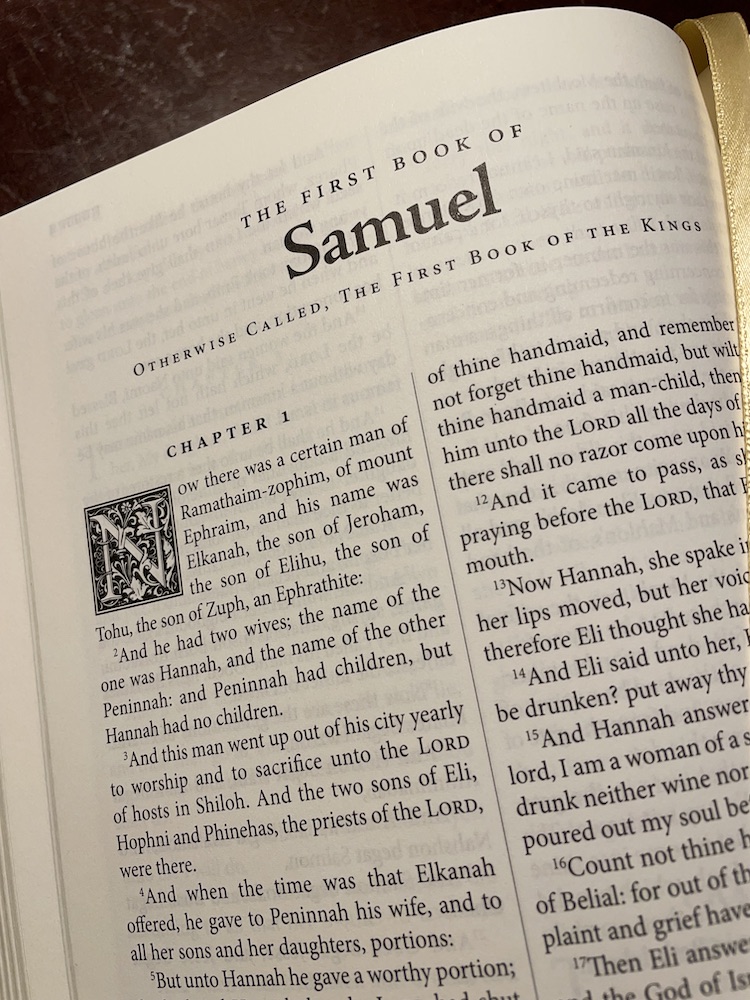
1 Samuel 4
1 Samuel 4:3, When it comes among us it may save us. The ark of the covenant had become little more than a religious talisman or a good luck charm to the spiritually destitute Israelites. The fact that it symbolized the presence of Elohim among his people thus signifying how his people should act in the presence of their Creator, Benefactor and Protector mean nothing to them. The ark had become nothing more than a religious icon similar to a statue of the virgin Mary or some other saint, or a crucifix, a cross hanging somewhere or a picture of “Jesus.” These type of items give people a warm, fuzzy religious feeling and makes them feel spiritual, yet, beyond that, it held no significance in their lives, and certainly did not mitigate their irreligious lifestyle. You have no doubt heard the saying that Christianity is about relationship, not religion. Well, the Israelites certainly found this out the hard way when the Philistines shockingly captured the ark of the covenant. Wooden boxes, like crucifixes, church buildings, paintings of biblical characters, a cross worn around the neck, a Christmas tree, a statue of Saint Francis or the Buddha or some other religious paraphernalia mean nothing to the Almighty. Rather, it is the heart of man and obedience that matters. That does not mean that there is not a place for religious items, for the Tabernacle of Moses was full of them. The difference is that these items where vehicles to bring the religious person into a personal relationship with their Elohim, and not an end in themselves as the ark had become for the Israelites.

1 Samuel 4:15, His eyes were so dim…he could not see. Eli suffered both from physical and spiritual blindness. It is true that one’s eyes grow dim with age as the body wear down. But the sad fact is that Scripture reveals that Eli had lost his spiritual eyesight because of his spiritual complacency and tepidness. Sometimes how we are on the outside—our physical ailments—mirror what is going on in the inside—our spiritual condition. This is why when we are afflicted or experience trials, we need to pray for wisdom and discernment, so that we can ascertain why we are going through these difficulties and so that we many overcome and grow spiritually (Jas 1:1–4).
1 Samuel 4:22, The glory has departed. Again, the Israelites were focusing on a wooden box—the ark of the covenant, and had missed its deeper significance. The glory of Elohim’s presence had not been in Israel because of a box, but because Israel was YHVH’s set-apart, kadosh or holy nation that diligently hearkened unto his voice and obeyed him. Israel, like the blind Eli, had lost sight of this and had corporately become spiritually blind and destitute. It is for this reason alone that the glory of Elohim had departed the nation. It had little or nothing to do with a wooden, gold plated box.
1 Samuel 5
1 Samuel 5:3–4, Dagon, fallen on his face. This is undoubtedly ranks as one of funniest passages in the entire Bible. The idea of a stone statue falling down and “worshipping” the piece of furniture that represented the Elohim of Israel is hilarious. As serious a book as it is, the Bible contains at least one other passages that stands out as being extremely comical. These is the story of Balaam’s talking donkey. What’s so funny here is that Balaam was so out of his sense that he actually answered his donkey’s questions as if it were an every day occurrence, which it obviously was not. In both of these stories, truth is stranger than fiction, and it would be hard to make up these stories.
Dagan was among one of the pagan gods that the Philistines worshipped. Some Bible scholars think that Dagan was a fish god because the Hebrew word for fish is dag. More likely, Dagan is the god of the grain harvest (from the Hebrew word dagan meaning “grain”) and was a principal deity in the middle Euphrates region. The pagans believed that various deities controlled difference aspects of nature, and that by worshipping a particular deity they would gain its favor and thus experience physical well-being.
The moral of the story of Dagan twice falling down before the ark of the covenant, and finally, the second time, having its head and hands broken off is clear: the Elohim (God) of Israel was superior to the chief god of the Philistines, which struck fear into Israel’s adversaries.
1 Samuel 5:6, 9, Tumors (Heb. ophel; emerods, KJV, The Catholic Bible; hemorrhoids, NASB). The basic meaning of the Hebrew word ophel is “tumor”and refers to some loathsome skin disease. In the fourth century, in his Latin Vulgate, Jerome translated ophel as “swellings of the secret parts,” which would suggest the idea of either a hemorrhoid or some sexually transmitted disease. In pagan cultures, the idea existed that to appease the wrath of a god one needed to present gifts as a trespass offering to it. The fact that to presumably to appease the wrath of the God of Israel, the Philistines made golden images of tumors and mice may suggest that whatever the cause of the tumors was, it was brought on by mice or rats (1 Sam 6:4). This points to the bubonic plague which is caused by flees from small animals such as rats. The word bunonic derives from the Greek word meaning “groin”. Whatever the nature of the disease that broke out among the Philistines, it caused the fear of Elohim to come upon them and they wanted to be rid of the ark of the covenant post haste.
1 Samuel 6
1 Samuel 6:3–6, So they said. The heathen Philistine priests, diviners and diviners had a much greater sense of spiritual reality than nearly all of our modern post-Christian and secular humanist social leaders and our lukewarm and apostate spiritual leaders. The Philistine leaders understood that their sin had brought YHVH’s judgment upon their nation, which is more than can be said for most of our modern social and spiritual leaders who are so arrogant and blind spiritually that they have lost touch spiritually with everything except what will keep their manmade kingdoms going.
1 Samuel 6:4, Five golden tumors…rats. See notes at 1 Samuel 5:6, 9.
1 Samuel 6:7, 9, Milk cows. The Philistines put YHVH to the test. If the cows returned to their calves (according to their natural instincts), then there was nothing supernatural about the ark. However, if the cows went against their natural instincts and headed for Israel, instead of returning to their calves, then this would be a sign from YHVH that his hand was upon the ark.
1 Samuel 6:19, Fifty thousand and seventy men.This is likely a copyist error, since the LXX and Josephus state the number as being only seventy. The marginal references in many Bibles note this as well. The ArtScroll Rubin Edition Commentary on 1 and 2 Samuel state that according to Jewish tradition, the number of Israelite men killed was 70, while the number of Philistines was 50,000 (page 43). (See note at 2 Sam 15:7.)

